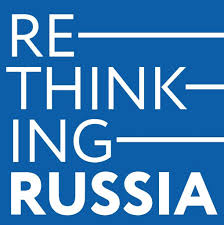
Andrei Korobkov
Andrei Korobkov is a professor of Political Science and International Relations at Middle Tennessee State University. He graduated from Moscow State University and received a Ph. D. in Economics from the Russian Academy of Sciences (Moscow, Russia) and a Ph.D. in Political Science from the University of Alabama. He has previously worked as a Research Fellow at the Institute of International Economic and Political Studies of the Russian Academy of Sciences in Moscow and taught at the University of Alabama.
Russia and the West are trapped in credibility crisis. Under these circumstances, both the U.S. and Russia need to search for a political compromise and the new conceptual comprehension of the evolving international system.
The Russian-Western confrontation is intensifying, with the UK going to expel 23 Russian diplomats due to the accusation over poisoning of a former Russian spy, Sergei Skripal and his daughter Yulia, on British soil. Meanwhile, in a response to Russian President Vladimir Putin's March 1 Federal Assembly address, Pentagon talks about the potential of U.S. submarines, which could destroy Russia.
In fact, Putin's address means that the world is witnessing the evolving crisis of the unipolar system that was based on the U.S. leadership and emerged with the end of the Cold War.
The collapse of the Soviet Union in December 1991 was viewed there not just as the West's political victory, but as a confirmation of the Western model's moral, political and economic superiority, perceived since then as the only right and possible one.
Now, with Russia's growing influence in the Middle East and its military buildup, Moscow is reassessing its role in the world: The Eurocentric system that has dominated the world for half a millennium is collapsing, with the the center of world power moving to the Pacific and the tensions between Russia and the West having been deepened.
U.S. President Donald Trump's predecessors - Bill Clinton, George Bush Junior and Barack Obama - tried to maintain the U.S. leadership. They were surprised when Russia, with the retake of Crimea and its operation in Syria, challenged their global dominance. Putin's Federal Assembly address gives them a reason to be concerned even more.
This means that the anti-Russian rhetoric will increase, while the Russia dossier probe will be intensified. This, in turn, will lead to further worsening of U.S.-Russia relations and will have serious implications for the Russian foreign and domestic policies. In fact, Putin's boast about Russia's new hypersonic missiles is the direct result of Washington's anti-Russian rhetoric in the West.
Such statements aggravate the credibility crisis between Russia and the U.S. They also have other side effects like the demonization of Putin's image in the West, the growth of the anti-Americanism among Russians, and the strengthening of the Hawks' positions within the Kremlin's inner circle.
Such recent actions as the International Olympic Committee's decision to ban the Russian state and many Russian athletes from the 2018 Winter Olympic Games (characterized by Putin as "totally orchestrated and politically motivated"), the expelling of the Russian diplomats from the U.S. and the UK, and the official labeling of the state-funded Russia Today TV channel and Sputnik news agency as the foreign agents in the U.S. have immediately led to Russia's reciprocal moves. Specifically, these moves allowed the Kremlin to rally the Russian public opinion around Putin, label the U.S. State Department-funded Voice of America and Radio Liberty media outlets as foreign agents, and introduce bans on some internet sites. All these stances are convenient to Putin at the moment when he is running his fourth presidential campaign.
Russia's expanding military capabilities, its growing irritation with the perceived violations by the West of the 1990s agreements, including the EU and NATO eastward expansion and the alleged Western interference into the internal affairs of Russia and other post Communist states became the foundations of the new Putin's foreign and domestic policies. It turned out to be especially clearly visible during his third presidential term (2012-18). Today Putin tries to diversify the agenda by switching the focus to Russia's modernization of its nuclear arsenal. His Federal Assembly address is the message not only to the domestic audience before the presidential election, but also to the West.
What is dangerous today is the fact that Washington's Russia policy brings about the results essentially opposite to the desired ones: The U.S. pushes the Russian domestic and foreign policies further in the anti-Western direction, basically threatening the United States security interests.
Putin's federal Assembly address should be a wake-up call for the West in this regard. Under these circumstances, both the U.S. and Russia need to search for a political compromise and the new conceptual comprehension of the evolving international system.
rethinkingrussia.ru



.jpg/250px-ElbeDay1945_(NARA_ww2-121).jpg)





